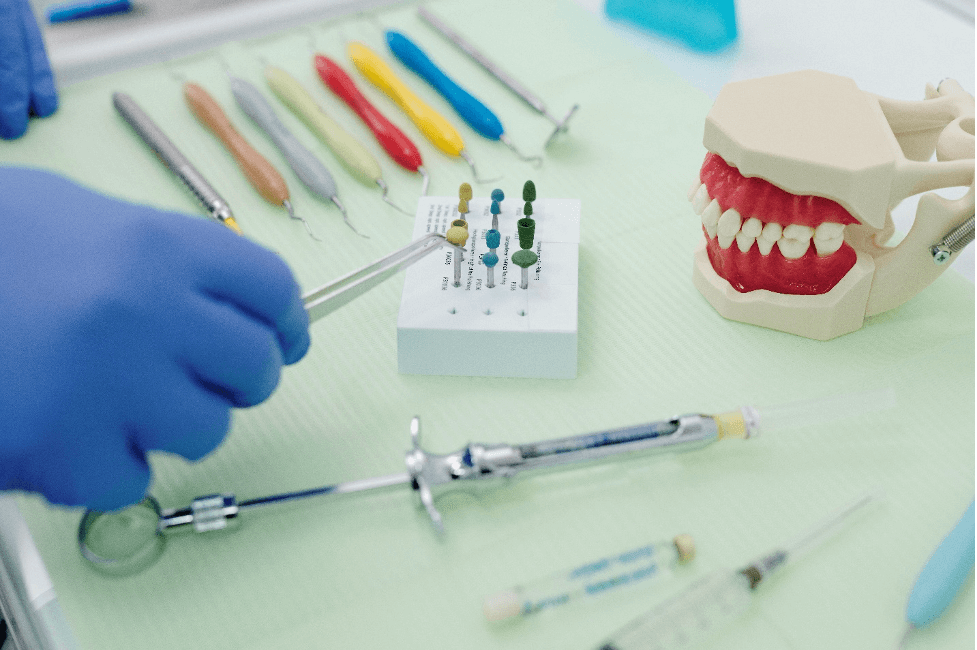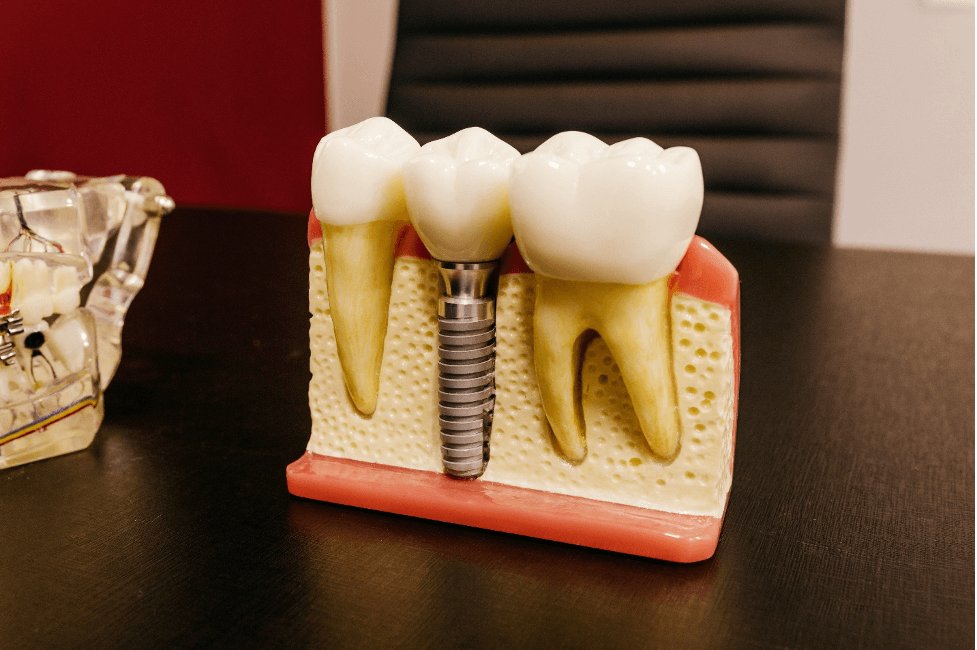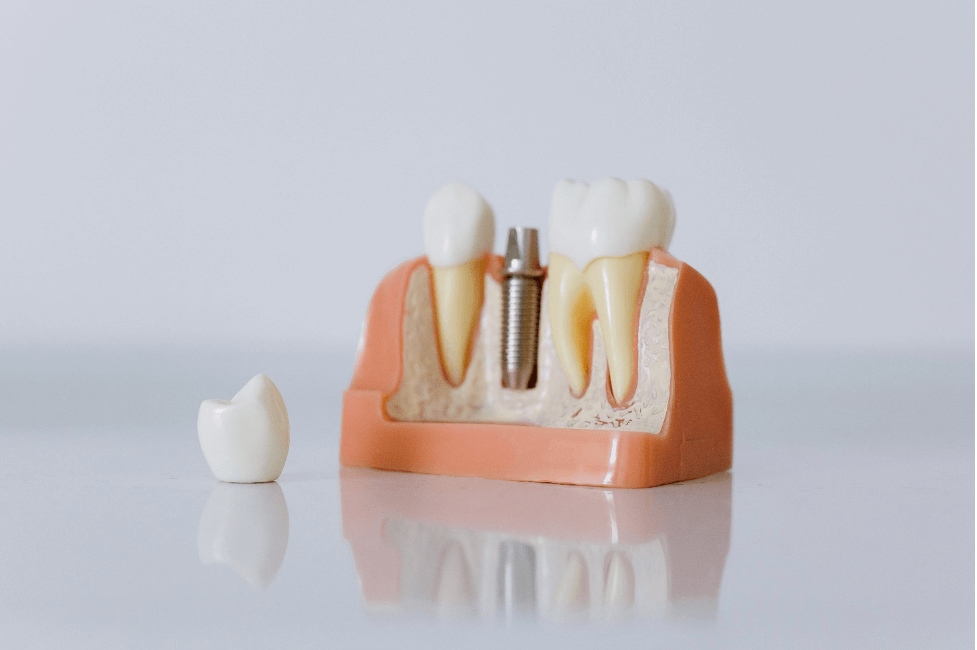Losing a tooth or a few teeth is never easy. Gaps in our smiles can leave our mouths feeling a little emptier than we would like. Either way can be traumatic to deal with, either in the fast, violent loss from a sudden injury or the slow, inevitable march of the age of disease. We rely on our smiles to show happiness and connect to other people, and having them marred can ruin our confidence and invite judgment and pity from others. There are few things more heartbreaking than knowing that others are looking down on us because we’re missing a tooth or six, especially when that loss might be beyond our control.
Losing teeth is not only unsightly, it is potentially unhealthy. Dental health is strongly connected to the health of the rest of the body, even if that link is not completely understood yet. For example, an excess in plaque buildup in the mouth has a strong correlative link to a buildup of plaque in the arteries, despite there being two different kinds of plaque. While it is likely that both of these are linked to poor eating habits, this correlation even exists in cases of a strict diet. The mouth is the harbinger of the state of the rest of the body, and damage to the teeth and gums can portent damage to the rest of the body. Heart disease, inflammation, and even autoimmune issues can be linked to oral health.
Fortunately, advancements in dental technology and methodology have made the battle of oral health easier to fight. Both preventing tooth loss and replacing missing ones have become easier and more affordable than ever before thanks to a number of new methods and refinements to old ones. The real choice is going to come down to dentures vs dental implants, and determining which one is the better option depends on your needs. Both have strengths and weaknesses, and understanding those strengths and weaknesses is key to determining which can best meet your needs.
Dentures Are Less Expensive, But Weaker

Nearly everyone knows what dentures are. Thanks to pop culture osmosis, dentures have become an (unfairly) ubiquitous symbol of aging, and are frequently the subject of jokes. While dentures are the more cost-effective of the two options, they come with a significant number of drawbacks that must be acknowledged. Those who use dentures know that they can be more complicated and less effective than they would like. Using adhesive paste can be messy in the best of times, and can do little to actually hold them in place in the worst. Most people who use dentures report that they can be uncomfortable or feel unnatural in the mouth as well. The material that makes them is usually on the cheaper side, and repeated cleanings can cause chemical deterioration that leaves a foul taste in the mouth..
Dentures must be replaced fairly often due to their temporary nature and material construction. Cleaning them can also be a hassle, particularly because they cannot be worn overnight and must be suspended in a special solution (or, if you’re particularly lazy, water) when not in use. You would think that all of these drawbacks would at least buy a measure of reliability, but even that isn’t a certainty. Dentures can become loose in the mouth during use, creating an uncomfortable sensation and an embarrassing clicking noise. Additionally, dentures frequently don’t even look natural, which defeats the purpose of wanting your smile to look good!
What, then, are the advantages of dentures? For one, they are low maintenance. While cleaning can be a chore, they require less effort to maintain than actual teeth. Second, they are less expensive than implants. And… that’s it! Those are the only upsides to dentures compared to implants. However, there are advancements in denture technology that have removed many of the issues with them: dental implants. Instead of being affixed via adhesive paste, a surgery will install metal nodes in the mouth that denture implants connect to. This creates a stronger, more secure connection between the artificial teeth and the mouth. If you must have dentures, you would be wise to consider denture implants.
Dental Implants are More Expensive, But Stronger and Permanent

Implants are the true successor to natural teeth, as you can see here. A dental health professional conducts a special surgery to drill new artificial teeth into the gaps left behind by loss. Support studs are drilled and screwed directly into the jawbone, onto which a support structure and crown are affixed to create a permanent o semi-permanent replacement tooth. Even those that require eventual replacement can be expected to last almost ten years before needing new ones, and getting new ones is as simple as unscrewing the artificial tooth and putting a new one in. They are made from a variety of materials, including titanium, porcelain, and zirconium – all stainless materials that are easy to clean.
The elephant in the room is that implants are more expensive than dentures. However, the benefits are far greater than the cost difference between them, and there is no doubt that implants are the way to go. The higher cost is entirely front-ended, as ongoing costs for implants are next to nonexistent. When compared to dentures, which involve frequent replacement costs and a bevy of materials needed to make them partially work, the initial sticker shock for implants fades considering that they’re fire and forget kind of cost.

Implants also have the benefit of being more natural-looking. There are several kinds of implants that can meet your mouth’s unique needs, ranging from single teeth to full dental bridge replacements. Because they essentially are replacement teeth instead of temporary chewing devices, implants have the advantage of permanence as well. They’re stronger by far than their alternatives by virtue of being affixed directly to the jawbone instead of inserted into the mouth and held by adhesive. Overall, implants are the better of the two options in almost every way.










